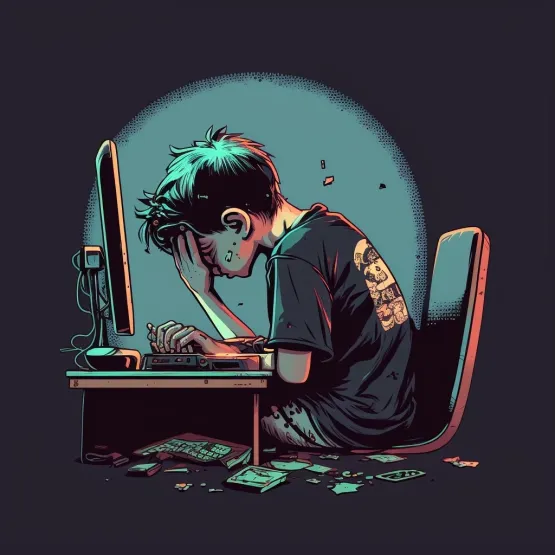I used to describe myself as an avid reader – the kind of overenthusiastic child who would often pack an Enid Blyton in her school bag just in case she was able to squeeze in a few pages during lunch break and in between classes. Now, I seem to prefer my lunch with a side of reels. That’s not necessarily a bad thing – we all require mindless entertainment to dissipate stress on a busy day.
What’s concerning is how many other people of my generation have similar experiences of losing their attention span when it comes to reading. When asked why they thought this happened, many unanimously named the internet as the culprit. Research by the NICM Health Research Institute showed that high exposure to the internet does impact several brain functions. Among other aspects, the constant prompts and notifications we see while using our devices results in our attention becoming more divided. This affects our ability to focus on just one task at a time.
Counsellor and mental health practitioner Simi Vij told Springtide that there is no doubt that attention span has reduced, across all age groups. “We have become used to instant gratification for everything, because that’s what we’re getting with phones and social media. It has also affected the ability to think. If you ask them anything, they want to immediately refer to their phones.”
Reading a book requires more mental effort than many of us are willing to take today. It also requires imagination, which Vij believes is affected thanks to the constant exposure to visual media.
“When I check my social media after a long day of using the internet for work, I can feel the fatigue quite strongly,” Urvi recounts. She got access to the internet at the age of 12, and had her first phone at 13. “But I scroll through my Instagram anyway! If you asked me to read a book after a full day of work, I’d probably feel too tired to do that. Scrolling through social media is like shutting off your brain. It doesn’t need work, so it is the easier, more tempting option.”
Further, it’s not just about quick access to information online – the way that information is presented also plays a role. If being chronically online wasn’t enough, even the duration of the visual media we consume is reducing. Most of us would probably swipe past a reel if it droned on for longer than 60 seconds, and 90-minute films are all the rage.
“Everything is now in simplified bullet points, you don’t have to read long paragraphs, not even for news,” Vij said. “Even in the field of psychology, you can find solutions on Instagram in posters and in bullet points. You can just watch YouTube videos to learn, and even those videos are now two to three minutes long.” She explains that since the need to read has reduced, it becomes an excruciating task to read even short texts when required.
Jia Shah, who started using social media at 14, shares a similar experience. “I really feel impressed when I realise how much I used to read as a kid. Now I’m happy just finishing one book a month. It’s not just reading, though, I think my concentration has reduced in general too. College lectures are hard to focus on, and I have to take more frequent breaks between studying.”
So if you’ve been able to read this article in its entirely – congratulations. You’re among the minority. 55% of people will spend less than 15 seconds on a post, page or article they click on. All of this being said, it is fanciful to think that we will all suddenly change how we use the internet. For most, it is not possible to drastically reduce online activity on account of school and work. One cannot really police the few moments of free time either. However, it helps to take a step back and reflect on our relationship with the internet. It will only grow stronger in the years to come, distancing us from the things we could once do quite easily.





Warning: Use of undefined constant ‘url’ - assumed '‘url’' (this will throw an Error in a future version of PHP) in /var/www/html/wp-content/themes/theissue/functions.php on line 143